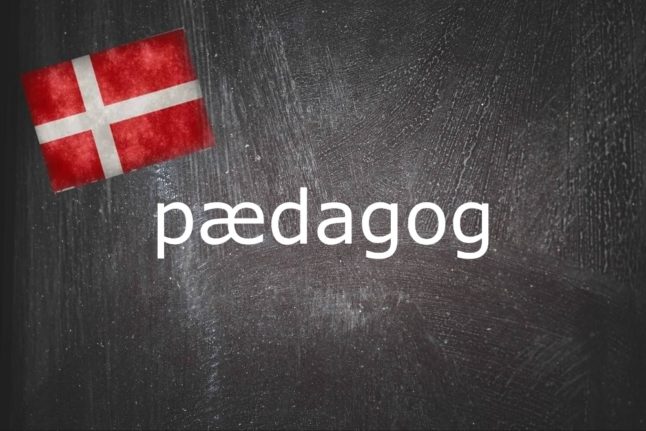What is at tage hul på?
While at tage is the verb for “to take”, hul is “hole” and på is the preposition usually equivalent to “on” in English, a direct translation of this phrase would be “to take a hole on” but a more sensible one is “to make a hole in”.
This doesn’t tell the full story though, because if you were to make a hole in something, either intentionally or unintentionally, you would probably use a different sentence to describe it.
Examples of this could be jeg væltede på cyklen, og der er gået et hul i mine bukser (“I fell off my bike and got a hole on my trousers”) for an unintended hole, or må jeg godt lave huller i væggen i min lejelejlighed? (“Am I allowed to make holes in the wall in my rented apartment”).
At tage hul på is not used for making holes in this way but has a figurative meaning for beginning something like a process or a task.
Why do I need to know at tage hul på?
Although the origins of this figurative expression are not clear to me, whenever I hear I get the image of someone opening a can (like a Cola can for example). The sound of the ring-pull being pushed down and the air rushing out and fizzing of the drink inside seem to fit with the connotations of this expression, opening up something new and starting on it, with a limited time frame before it expires or is finished.
At tage hul på can be used in a variety of scenarios, including politicians and trade unions commencing negotiations; a sports tournament or Olympic games beginning; the start of legal proceedings; or the first day of a new school term.
A similar, but not identical expression is gå i krig med, literally “go to war with”. Unlike tage hul på, this can be used in both its figurative and literal sense. When used figuratively, it means to energetically get stuck into a task that has the potential to present challenges.
Examples
Christian glæder sig til at tage hul på medicinstudiet, når han starter på Aarhus Universitet til September.
Christian is looking forward to beginning his medicine studies when he starts at Aarhus University in September.
Vi har endelig taget hul på vores store projekt med at rydde op i kælderrummet.
We’ve finally got started with our big project of tidying up in the basement.



 Please whitelist us to continue reading.
Please whitelist us to continue reading.
Member comments